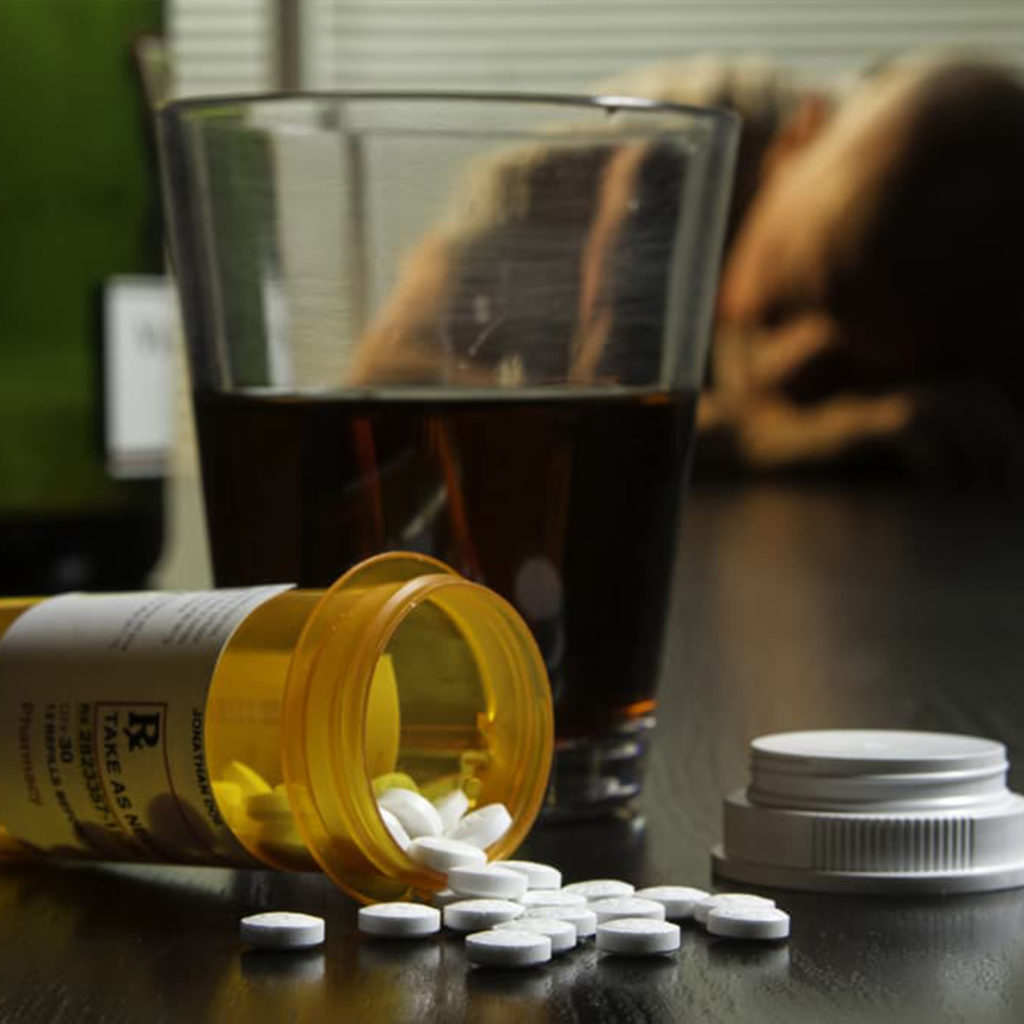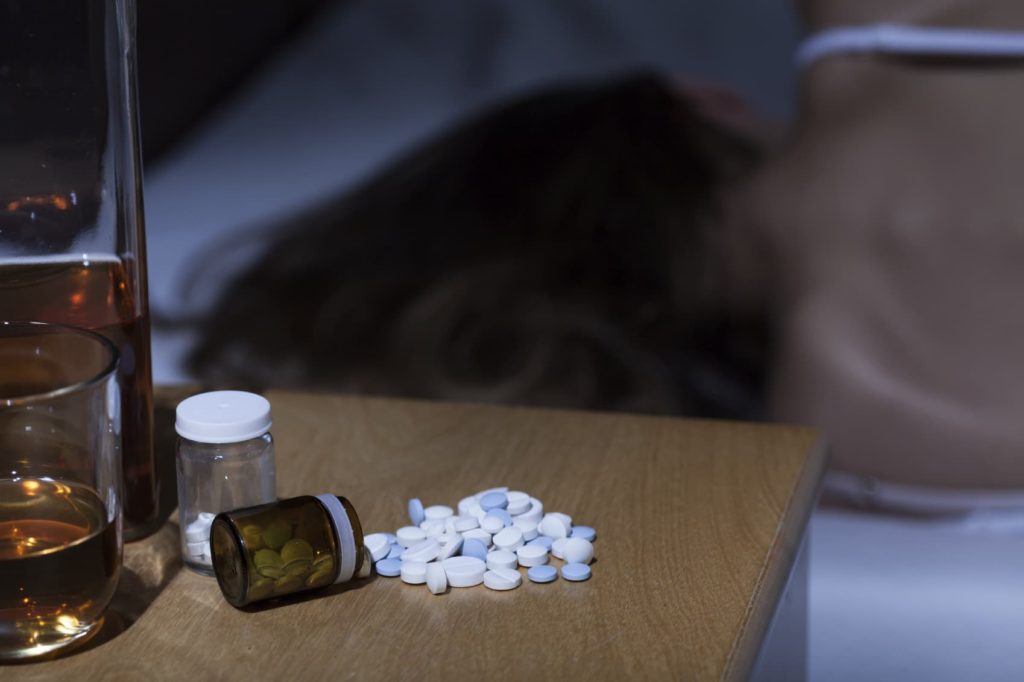Is Valium Harmful?
According to the New England Journal of Medicine, Valium was once promoted as a “wonder drug” that could safely relieve a wide range of problems, from clinical anxiety to job stress, menopausal symptoms, and marital conflicts; however, the potential health hazards of Valium including the potential for abuse and addiction are now more apparent to the public.
Diazepam, which is sold under the trade name Valium, is a prescription drug that is used to treat anxiety disorders, sleep disorders, seizures, muscle spasms, alcohol withdrawal, and restless leg syndrome. The U.S. Drug Enforcement Administration classifies Valium as a Schedule IV narcotic, meaning that it is less addictive than drugs like heroin, cocaine, or methamphetamine.
However, the widespread availability of Valium, and the pleasant calming effects that it produces, have made diazepam a common drug of abuse. Long-term use of diazepam can lead to chemical dependency and, eventually, to severe addiction. Understanding the health complications of Valium addiction may encourage nonmedical users of this drug to reach out for help.


Get Your Life Back
Find Hope & Recovery. Get Safe Comfortable Detox, Addiction Rehab & Dual Diagnosis High-Quality Care.
Hotline(844) 597-1011How Dangerous is Valium? Short-Term Effects of Valium
Valium decreases activity in the nervous system, including the way brain signaling or communication, takes place between various brain centers. When a user abuses the drug, they experience a high that includes:
- Euphoria
- Lack of coordination
- The feeling of being drunk
After the Valium high peaks, there can be a period of withdrawal—experienced as a comedown or crash. The mellow feeling begins to disappear as the brain rebounds and speeds up from its drugged state and produces other undesirable effects, such as:
- Rapid heart rate
- Stomach cramps
- Depression
- Seizures
- Anxiety (sometimes more intense than the original anxiety)
- Irritation
- Fever
Most addicts counteract the crash with more Valium or another drug to slow down the body and produce once again the sluggish, happy feeling.
The danger of continually taking Valium, however, is that the body quickly builds a tolerance that makes it harder and harder to reach the euphoric state with the same amount of Valium, so the user will need to take increasing doses—upping the risk of severe addiction and overdose. The compulsion to take ever-increasing amounts of Valium is one of the signs of addiction.
How Dangerous is Valium? Valium Long-Term Side Effects
Heavy use of Valium over an extended period can have powerful effects on the brain and body. These effects can be permanent and, in some cases, life-threatening. The long-term effects of Valium include:
- Memory loss
- Hallucinations
- Difficulty breathing
- Slowed pulse
- Coma
- Heart attack
Valium addiction can also cause social isolation, job loss, and financial difficulties. It can even lead to permanent physical damage from accidents that occur while under the influence of the drug.
Get Help. Get Better. Get Your Life Back.
Searching for Accredited Drug and Alcohol Rehab Centers Near You?
Even if you have failed previously and relapsed, or are in the middle of a difficult crisis, we stand ready to support you. Our trusted behavioral health specialists will not give up on you. When you feel ready or just want someone to speak to about therapy alternatives to change your life call us. Even if we cannot assist you, we will lead you to wherever you can get support. There is no obligation. Call our hotline today.
(844) 597-1011The Dangers Of Valium
- For 13 years, Valium was the most prescribed drug in America.
- Valium is used in veterinary medicine. Many users obtain Valium through veterinarians, rather than doctors.
- Diazepam has over 500 different brands worldwide.
- It is commonly believed that over 1 million people have been prescribed benzodiazepines their entire adult lives.
When used properly, Valium does not produce the same effects as it does when abused/misused. Valium has side effects with proper use, but these are temporary and should go away after a few standard doses.
Some of the most common side effects of Valium include:
- Dry mouth
- Decreased respiratory rate
- Changes in heart rate/rhythm
- Slurred speech
- Delayed reflexes
- Nausea
- Appetite changes
- Trouble urinating
- Blurred vision
- Confusion
- Decreased memory consolidation
Valium Withdrawal
Valium withdrawals are not exclusive to drug addicts; they can be experienced by anyone taking the drug, prescribed or otherwise. Patients who take the drug longer than advised can experience potentially dangerous withdrawals when suddenly ceasing Valium use. Close medical supervision is advised in any benzodiazepine withdrawal situation.
Addicts who experience withdrawals usually do so after prolonged use. Frequent and heavy Valium use can lead to serious withdrawal symptoms including:
- Seizures
- Anxiety
- Hallucinations
- Respiratory distress
- Tachycardia
- Numbness
- Personality changes
- Coma
First-class Facilities & Amenities
World-class High-Quality Addiction & Mental Health Rehabilitation Treatment
Rehab Centers TourRenowned Addiction Centers. Serene Private Facilities. Inpatient rehab programs vary.
Addiction Helpline(844) 597-1011Proven recovery success experience, backed by a Team w/ History of:
15+
Years of Unified Experience
100s
5-Star Reviews Across Our Centers
10K
Recovery Success Stories Across Our Network
- Low Patient to Therapist Ratio
- Onsite Medical Detox Center
- Comprehensive Dual-Diagnosis Treatment
- Complimentary Family & Alumni Programs
- Coaching, Recovery & Personal Development Events
Side Effects of Valium Withdrawals
The symptoms of acute withdrawal will typically include some combination of:
- Physical symptoms can include combinations of headaches, nausea, vomiting, stomach pains, cramps, and even tremors (most often, these tremors will occur in the hands)
- Cardiovascular symptoms that could be associated with rebound anxiety or just be part of the general withdrawal process (increased blood pressure, increased heart rate, and so forth)
- Neurological symptoms, such as confusion and the potential to develop seizures (the occurrence of seizures during the acute phase of withdrawal is a serious condition that can be potentially fatal and needs immediate medical attention)
- Psychological symptoms that can include cravings, mood swings, depression, panic attacks, and rebound anxiety

Valium Withdrawals Timeline
Acute stage: About 1-4 days following a person’s last use of Valium, the individual will begin to experience the effects of acute Valium withdrawals. Valium has a variable half-life that can be as high as 48 hours, so for some individuals, there may be no significant symptoms for a day or so, but by day 3-4, the person will begin to experience acute Valium withdrawals symptoms.
The determination of how soon after stopping Valium these symptoms will appear depends on how much and how often the person took Valium, the length of time Valium was abused, whether or not other drugs were also abused, and individual differences in metabolism and emotional and psychological stability. For instance, some individuals who are prone to anxiety and depression may begin to experience rebound anxiety (a return of the anxiety that was present before the person started taking the drug) after a relatively short period of not using Valium.

General Valium withdrawals: After a period of 3-4 days of acute symptoms, the person will tend to experience a more lengthy withdrawal phase that will continue for 10-14 days in most cases. During this period, the person will experience increased cravings for Valium, lightheadedness, mild headache, mild fever, periods of nausea, potential chills, depression, and continuing bouts of anxiety.
These symptoms will be significantly less intense than the acute symptoms. In general, the person will experience flu-like symptoms, general feelings of dissatisfaction, and an overall sense of melancholy. In some individuals, there may be an additional period of rebound anxiety between 10 and 14 days.
Following the withdrawal period, individuals will slowly stabilize but may still experience issues with anxiety and depression, and general feelings of being “out of sync.”
Certain references also refer to post-acute withdrawal syndrome, which is a longer period of more generalized psychological symptoms that may occur in some individuals following recovery from drug abuse. The symptoms are typically described as issues with mood, irritability, problems experiencing pleasure to the same extent that one was able to experience pleasure before drug abuse, and general feelings of dissatisfaction and variable motivation.
Post-acute withdrawal syndrome has been characterized as a lengthy period that can last from weeks to years that requires ongoing treatment (mostly in the form of therapy); otherwise, it can lead to an increased potential for relapse. The syndrome is not universally accepted among addiction researchers and mental health workers.
Understanding the withdrawal process from Valium is important because individuals who are going through withdrawal are at a higher risk for relapse. The sudden appearance of rebound anxiety and physical symptoms can be almost immediately countered if the individual begins to take Valium again. This makes it extremely difficult for individuals to discontinue Valium “cold turkey” on their own without professional assistance.
World-class, Accredited, 5-Star Reviewed, Effective Addiction & Mental Health Programs. Complete Behavioral Health Inpatient Rehab, Detox plus Co-occuring Disorders Therapy.
CALL(844) 597-1011End the Addiction Pain. End the Emotional Rollercoaster. Get Your Life Back. Start Drug, Alcohol & Dual Diagnosis Mental Health Treatment Now. Get Free No-obligation Guidance by Substance Abuse Specialists Who Understand Addiction & Mental Health Recovery & Know How to Help.
Valium Addiction Treatment
Addiction is classed as any pattern of behavior that causes negative consequences for the individual. So if the use of benzodiazepines has started to affect the everyday life of a person negatively, it is likely that they have an addiction. If this is the case, it is imperative to get treatment to regain control of your life.
Treatment may include a program of detoxification and rehabilitation. The person may or may not be prescribed a substitute drug to help with the withdrawal from the medication. Included may be a combination of the following treatments and therapies:
- Cognitive-behavioral therapy (CBT) for Addiction
- Motivational interviewing
- Contingency management
- Group support and counseling
- 12-step work
- Relapse prevention strategies
To overcome an addiction to benzodiazepines, a detox will likely be necessary; this could potentially lead to a range of unpleasant withdrawal symptoms. It is not recommended for a person suffering from Benzo Addiction to stop taking the medication abruptly as this can lead to severe symptoms.
During a detox, experienced staff will ensure you are comfortable and safe at all times and will monitor your progress while administering appropriate treatment. You may be advised to reduce your benzodiazepine consumption over a few days until you can quit completely. You might be provided with a substitute drug to help prevent the worst symptoms from occurring.
Because of the severity of benzodiazepine withdrawal symptoms, users generally start their recovery by gradually reducing their dosage. For most users, this can be done over a few weeks, though for those on a high dosage the process may take longer. This is designed to wean the client off the drug as safely and comfortably as possible. Since the effects of the withdrawal can be painful and traumatic even when the dosage is tapered off, the client may be prescribed anti-anxiety and anticonvulsant medication to help them through the process.
Experience Transformative Recovery at We Level Up Treatment Centers.
See our authentic success stories. Get inspired. Get the help you deserve.
Start a New Life
Begin with a free call to an addiction & behavioral health treatment advisor. Learn more about our dual-diagnosis programs. The We Level Up Treatment Center Network delivers recovery programs that vary by each treatment facility. Call to learn more.
- Personalized Care
- Caring Accountable Staff
- World-class Amenities
- Licensed & Accredited
- Renowned w/ 100s 5-Star Reviews
We’ll Call You


